India confirms three nationals missing in Iran, seeks Tehran’s assistance
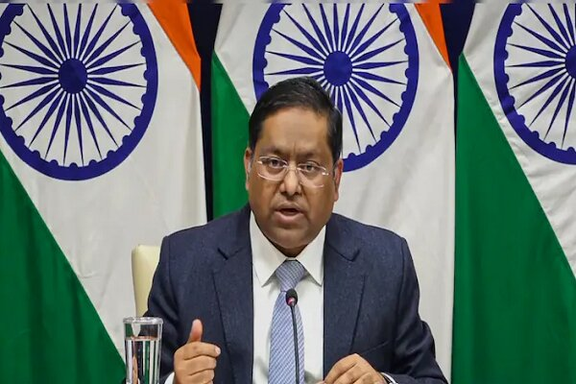
India announced on Friday that three of its nationals who traveled to Tehran for business have gone missing.

India announced on Friday that three of its nationals who traveled to Tehran for business have gone missing.
The Indian Ministry of External Affair said it has formally requested assistance from the Islamic Republic to locate the missing individuals.
"Three Indian nationals who had gone to Iran for business purposes, they are missing. We are in touch with their families. We have taken up the matter with the Iranian Embassy in Delhi and with the Iranian Ministry of Foreign Affairs in Tehran," Ministry of External Affairs (MEA) spokesperson Randhir Jaiswal said during a weekly briefing.
Jaiswal said the Indian Embassy in Tehran is in touch with local officials to make sure about the missing people's safety.
According to Indian media, 33-year-old Yogesh Panchal arrived in Tehran on December 5 but lost contact with his family two days later. Mohammad Sadeeque also traveled to Iran in December, while Sumeet Sud entered the country in January.
Past cases have seen Indian nationals detained in Iran, often as crew members aboard foreign vessels held in Iranian waters. Over the years, Iranian intelligence arrested many foreigners and kept them as de facto hostages, according to Amnesty International and other human rights groups.
Iran’s foreign ministry has yet to comment on the situation.
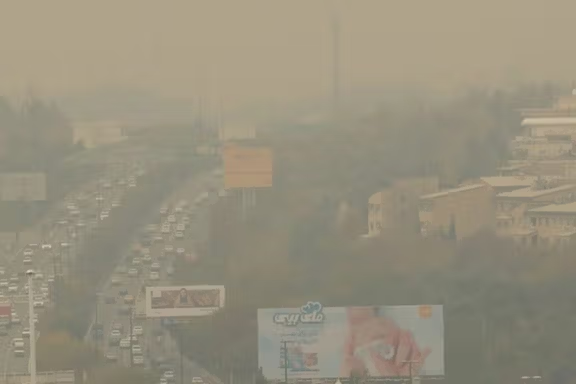
Iranians are caught in an economic and environmental catch-22 as a fuel shortage is paradoxically coinciding with an uptick in polluting greenhouse gas emissions which by the government's own admission has killed tens of thousands of people.
The dual crisis has become so severe that schools across Iran have been forced to close for 24 days in the past three months. Government offices and businesses are faring no better.
“Iran loses approximately 50,000 lives annually due to air pollution. This is the human cost of air pollution," Iran’s Health Minister Mohammadreza Zafarghandi announced.
The financial cost of air pollution in Iran is at least $12 billion annually, he added, a figure that some estimates say could rise to $20 billion.
These vast human and financial costs come alongside a significant reduction in the domestic use of cleaner fossil fuels which are set aside for profitable export abroad.
Meanwhile, Iran has ramped up the consumption of highly polluting fuels like mazut, or heavy fuel oil.
In the absence of official statistics, Iran International has found evidence that Tehran has significantly increased its exports of cleaner fuels such as natural gas, liquefied petroleum gas (LPG), and kerosene while sharply increasing domestic consumption of highly polluting fuels like mazut.
The latest statistics from Turkey’s Energy Market Regulatory Authority show that in the first 11 months of last year, Turkey increased gas imports from Iran by 40%, reaching nearly 6.5 billion cubic meters. Iran also exports gas to Iraq, though no official figures on the volume are available.
Natural gas is the cleanest fossil fuel, followed by LPG (a combination of propane and butane).
Data from energy consultancy Kpler obtained by Iran International shows Iran’s LPG exports have grown significantly over the past four years, peaking at 337,000 barrels per day in 2024 or more than double the amount exported in 2020.
Radio Farda recently published a report citing a confidential Ministry of Petroleum document indicating Iran has also increased kerosene exports while nearly halving its domestic consumption.
The same document indicates that domestic mazut consumption in the first seven months of current fiscal year beginning in late March last year rose by over half compared to the same period last year.
In contrast, Iran’s exports of mazut - the most polluting fossil fuel - have been on a consistent downward trend in recent years while domestic use has surged.
Kpler data seen by Iran International shows Iran exported an average of 232,000 barrels per day of mazut last year—a 42% drop compared to 2021.
Iran has reduced its mazut exports because the mazut it produces contains 3.5% sulfur—seven times higher than the standard required for marine fuel. This high sulfur content has created significant challenges for exporting the fuel.
If Iran halted the export of cleaner fuels like natural gas or LPG, there would be no need to rely on mazut domestically, and diesel consumption would also halve.
Currently, Iran consumes around 700,000 barrels of diesel and 780,000 barrels of gasoline daily.
Greenhouse gas emissions up
According to the latest data from the Global Carbon Project, Iran’s greenhouse gas emissions in 2023 reached about 818 million tons, marking a 10% increase since 2020, a rise by nearly half since 2010 and a staggering 155% surge since 2000.
Globally, despite its relatively middling population size, Iran is the six biggest emitter of greenhouse gas.
Natural gas accounts for 70% of Iran’s energy consumption and over the past decade, Iran’s gas production and consumption grew by more than 5% annually.
However in recent years this growth has plummeted to just 2%, and the International Energy Agency reported in January that it dropped below 2% last year and was expected to shrink to just 1% in 2025.
Despite slowing gas production and mounting shortages, President Masoud Pezeshkian’s government has allocated the export of 16 billion cubic meters of gas in the upcoming fiscal year, or nearly double the amount for the target this year.
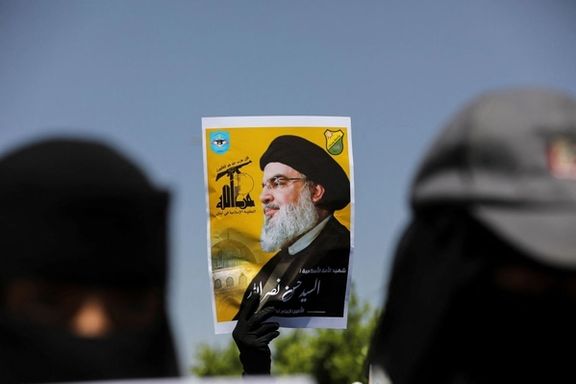
Iranian officials, during the commemoration of Hezbollah leader Hassan Nasrallah in Lebanon, doubled down on their support for the group amid escalating pressures from the US and Israel.
"The Islamic Republic of Iran, despite all opposing statements, firmly supports the resistance in the region, and this is a definitive decision," said Saturday Iran’s ambassador to Lebanon, Mojtaba Amani.
Senior Iranian official Vahid Jalalzadeh backed this position, portraying Hezbollah as a key player in Lebanon’s trajectory. "Today, in this place, we announce that we are witnessing the defeat of the enemy," he said, describing the group's ongoing struggle amid regional tensions.
Iran’s renewed backing comes at a time of crisis for Hezbollah. During Israeli strikes last year, the group suffered some of its worst losses in years. In a series of coordinated attacks in September and October, thousands of Hezbollah operatives were eliminated through targeted explosions and airstrikes. Key figures, including Nasrallah himself, were killed, dealing a severe blow to the group’s leadership and command structure.
The funerals of Hezbollah Secretary General Hassan Nasrallah and Executive Council Chief Hashem Safieddine will take place on Sunday, February 23, according to Al Hadath.
Meanwhile, Israel has accused Iran of funneling millions of dollars to Hezbollah through secret cash deliveries. According to a Wall Street Journal report, Iranian envoys have been flying into Beirut with suitcases stuffed with US dollars, while Turkish nationals have allegedly been acting as couriers to transfer additional funds from Istanbul. These allegations have been raised in formal complaints to the US-led ceasefire committee, though existing ceasefire terms focus on arms smuggling rather than financial transactions.
Washington, too, is increasing pressure on Lebanon’s leadership. As Prime Minister-designate Nawaf Salam assembles his cabinet, US officials are urging Lebanese leaders to prevent Hezbollah or its allies from controlling key positions, particularly the finance ministry. US diplomats have warned that Lebanon’s ability to secure vital international aid for post-war reconstruction could be at risk if Hezbollah maintains its political grip.
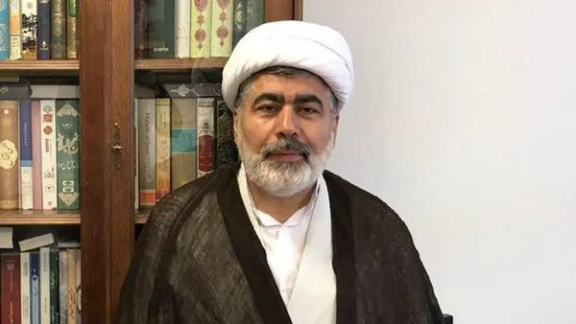
An Iranian cleric, an imam at an Islamic Center in suburban Stockholm, has been arrested for nearly two weeks and faces deportation from Sweden, Expressen reported Friday.
Almost two weeks ago, individuals in civilian clothing went to the home of cleric Mohsen Hakimollahi at midnight and took him away, a close associate told Expressen.
“He has been missing for more than ten days and we learned through various channels that he is in one of the Swedish Migration Board's detention centers and will soon be deported from the country,” added the source.
The Imam Ali Islamic Center, considered the largest Shiite institution in Northern Europe, has not issued a public statement on the matter.
Hakimollahi, aged 63, was transferred from Iran to Sweden to manage the Shiite center and had resided in the country for several years, developing connections with local political figures and religious organizations.
He was initially granted a temporary work permit in 2011, which was renewed three times prior to him obtaining permanent residency in 2017. However, that status has now been taken away.
"I can confirm that we are not conducting any preliminary criminal investigation connected to this individual," said Gabriel Wernstedt, spokesperson for Sweden’s Security Service (Säpo).
Wernstedt explained that Sweden's security police can apply special laws to counter security threats to the country. These laws allow authorities to detain non-citizens until their deportation. Such decisions are made based on various intelligence assessments.
In a separate development, the Swedish TV channel, TV4 Nyheterna, reported on Tuesday that Rouzbeh Parsi, of Iranian origin and the head of the Middle East program at the Swedish Institute of International Affairs (UI), communicated with authorities in Tehran who actively sought to amplify official Iranian foreign policy talking points in Western policy circles. Parsi later rejected the accusation. However, his brother, Trita Parsi in the US is known as a supporter of Tehran's foreign policy positions.
The detention of the cleric occurs after years of strained relations between Iran and Sweden, after 2019 when Sweden apprehended and sentenced Hamid Nouri, a former Iranian prosecutor for his involvement in the 1988 mass executions of political prisoners in Iran.
After serving five years of a life sentence, Nouri was swapped for a Swedish diplomat and an Iranian-Swedish national held in Iran on what human rights organization said were fabricated charges.
Another Iranian-Swedish individual, Ahmadreza Jalali, is still in custody in Iran facing a death sentence.
Hakimollahi’s phone has been inaccessible since his detention, and Expressen's attempts to contact his family for a statement have been unsuccessful.
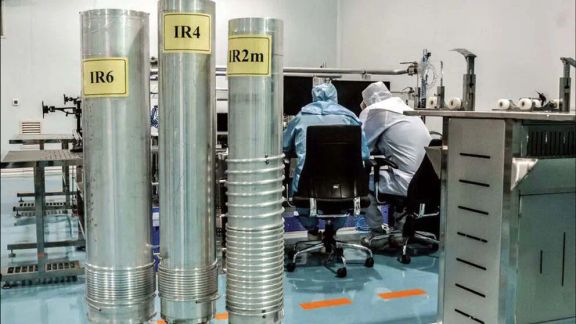
A Senate resolution introduced on Friday urges Washington and its allies to maintain a firm stance, ensuring that all possible options remain available against the threat of a nuclear-armed Iran.
Led by Senator Lindsey Graham (R-SC), the bipartisan resolution was co-sponsored by Senators John Fetterman (D-PA) and Katie Britt (R-AL), alongside Representatives Jared Moskowitz (D-FL) and Mike Lawler (R-NY).
“If the Iranian Ayatollah and his henchman obtain a nuclear weapon, it would be one of the most destabilizing and dangerous events in world history,” Graham said in a statement. “They are trying to acquire a nuclear weapon as part of their religious agenda to purify their faith, destroy the Jewish State, and drive Westerners out of the Middle East.”
During his first term in 2018, President Donald Trump withdrew from the Obama-era JCPOA nuclear deal, demanding greater concessions from Tehran. The Biden administration later spent 18 months in indirect talks with Iran to negotiate a new agreement, but the effort failed. Now, Iran has enough enriched uranium to produce four to five nuclear warheads in a relatively short time.
The resolution does not explicitly authorize the use of military force, but it affirms that Iran’s nuclear ambitions must be met with strong opposition. It also calls on Iran to immediately cease uranium enrichment, the development of nuclear warheads, and the possession of delivery systems capable of carrying such weapons.
Although Trump and his aides have taken a tough stance on Iran's nuclear threat, they have not outlined their plans for the coming months. It remains to be seen whether he will tighten economic sanctions or pursue negotiations.
Fetterman stressed the urgency of the issue, saying that “Iran’s pursuit of nuclear weapons is a threat we cannot ignore.” He added, “The United States, Israel, and our allies cannot afford to sit back while the Iranian regime continues down this dangerous path. This resolution sends an unmistakable message: all options are on the table to prevent a nuclear-armed Iran.”
Britt doubled down, insisting that a firm foreign policy is the key to keeping Iran in check. “Peace is achieved through strength, and our resolution sends an important bipartisan message to Iran that the US will not tolerate Tehran’s aggression,” she said.
Moskowitz described Iran’s nuclear ambitions as an unacceptable escalation that poses a direct threat to the security of the US and its allies. “Iran must dismantle its nuclear program now. This resolution makes clear the United States won’t stand for anything less and will consider all options to protect our national security,” he said.
Lawler also warned of the consequences of a nuclear-armed Iran, calling it a danger “not only to our closest ally, Israel but also to the whole world.” He added, “We must keep all options on the table when it comes to dealing with this unprecedented situation.”
Also on Friday, an exiled Iranian opposition group presented what it described as evidence that Tehran is secretly developing nuclear-capable warheads for missiles capable of reaching Europe.
At a press conference in Washington, DC, the National Council of Resistance of Iran (NCRI) pointed to the Shahroud missile site in northeastern Iran, where it said the Islamic Republic is working on nuclear warheads for solid-fuel missiles with a range of over 3,000 kilometers (1,864 miles).
The NCRI attributed the information to its network of sources inside Iran but did not provide further details on the evidence.
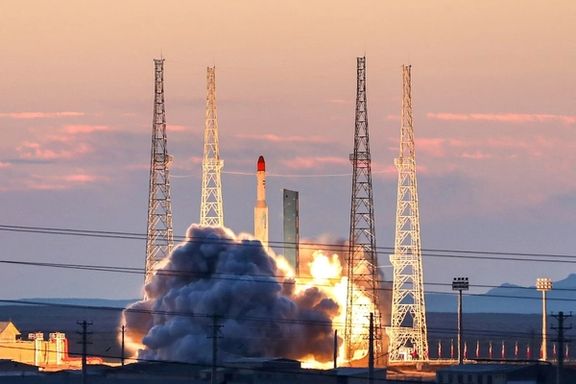
An Iranian exiled opposition group announced on Friday it has evidence showing the Islamic Republic is secretly developing nuclear-capable warheads designed for missiles that can reach Europe.
The Islamic Republic is developing nuclear warheads for solid-fuel missiles with a range exceeding 3,000 kilometers (1,864 miles) at the Shahroud missile site in northeastern Iran, the National Council of Resistance of Iran (NCRI) said in a press conference in Washington DC.
The group cited the source of the allegation as its network of members inside Iran, without elaborating.
"Additionally, a missile facility on the outskirts of Semnan, approximately 220 kilometers east of Tehran, is working to produce liquid-fuel missiles with nuclear warheads," the group announced on Friday. "This effort is being directed by the Organization for Advanced Defense Research (SPND), the entity established to consolidate Iran’s nuclear weapons activities."
Tehran denies seeking nuclear weapons and says it is engaged in peaceful scientific research. The US Central Intelligence Agency assessed last year that Iran has not yet decided to pursue a bomb but Israel says it believes Tehran seeks nuclear arms.
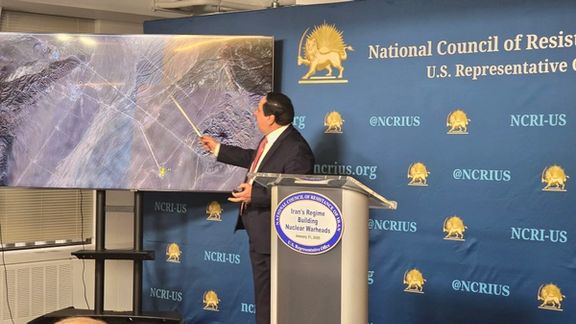
On August 14, 2002, the NCRI drew worldwide attention when it publicly accused Iran of clandestinely developing nuclear weapons during a similar press conference in Washington DC.
At that time, the group's spokesman Alireza Jafarzadeh said two secret nuclear facilities were being constructed in Iran at Natanz and Arak under the guise of front companies involved in the procurement of nuclear material and equipment.
Now more than 22 years later, Jafarzadeh once again appeared before media representatives to share information on how the Islamic Republic is allegedly camouflaging its nuclear weaponization efforts in Shahroud and Semnan missile sites as a satellite launching initiative.
"SPND is particularly dedicated to creating nuclear warheads for the solid-fuel Ghaem-100 missiles, which are equipped with mobile launch platforms at the Shahroud site and building liquid fuel missile Simorgh to develop nuclear warheads in Semnan," the NCRI said in a statement shared with Iran International.
Last October, Israel launched airstrikes against multiple Iranian sites including Shahroud's Space Center. Satellite images reviewed by the AP showed a central, major building at the Shahroud Space Center had been destroyed.
Iran's defense minister, however, denied damage to the Shahroud facility that builds ballistic missiles and launches rockets as part of the IRGC's space program.
In September, a report by the Institute for Science and International Security (ISIS) alleged that Iran has increased its activities at two nuclear sites, Sanjarian and Golab Dareh, that were key to its early nuclear weapons program two decades ago.
The report was based on satellite imagery given to the institute by Western intelligence officials, who say that in the past 18 months, Iranian experts who were involved in Iran’s alleged weapons-related projects in the early 2000s have been back at work at two secret sites.
The two sites mentioned by the ISIS were central to Iran’s alleged attempts to develop and test devices and systems that could be used to build a nuclear weapon, the report said.
Tehran has been brought before the Security Council repeatedly from 2007 to 2010 and faced several resolutions condemning the program and expanding international sanctions. However, military action against Iran's nuclear program may prevail over political and diplomatic pressure.
Over the past few weeks, Iran has been launching a series of military drills, including exercises focusing on protecting key nuclear sites such as Natanz and Fordow.
Israeli officials have reiterated the possibility of military action against Iran’s nuclear program. On Thursday, Omer Dostri, spokesman for Prime Minister Benjamin Netanyahu, told The Jerusalem Post that while Israel prefers a diplomatic solution, it doubts Iran will comply.
“War is one way to achieve our objectives. If Iran halts its nuclear ambitions without an Israeli strike, fantastic,” he said. “But we do not expect that to happen.”
Dostri also said Israel hopes to work with Trump to restore his maximum pressure policy, which had imposed severe sanctions on Iran.
While Trump has suggested he may seek a diplomatic solution, Dostri made it clear that Israel is ready to act alone if needed. “We’ll give it a chance, but the clock is ticking. If necessary, we will act – with or without American approval.”